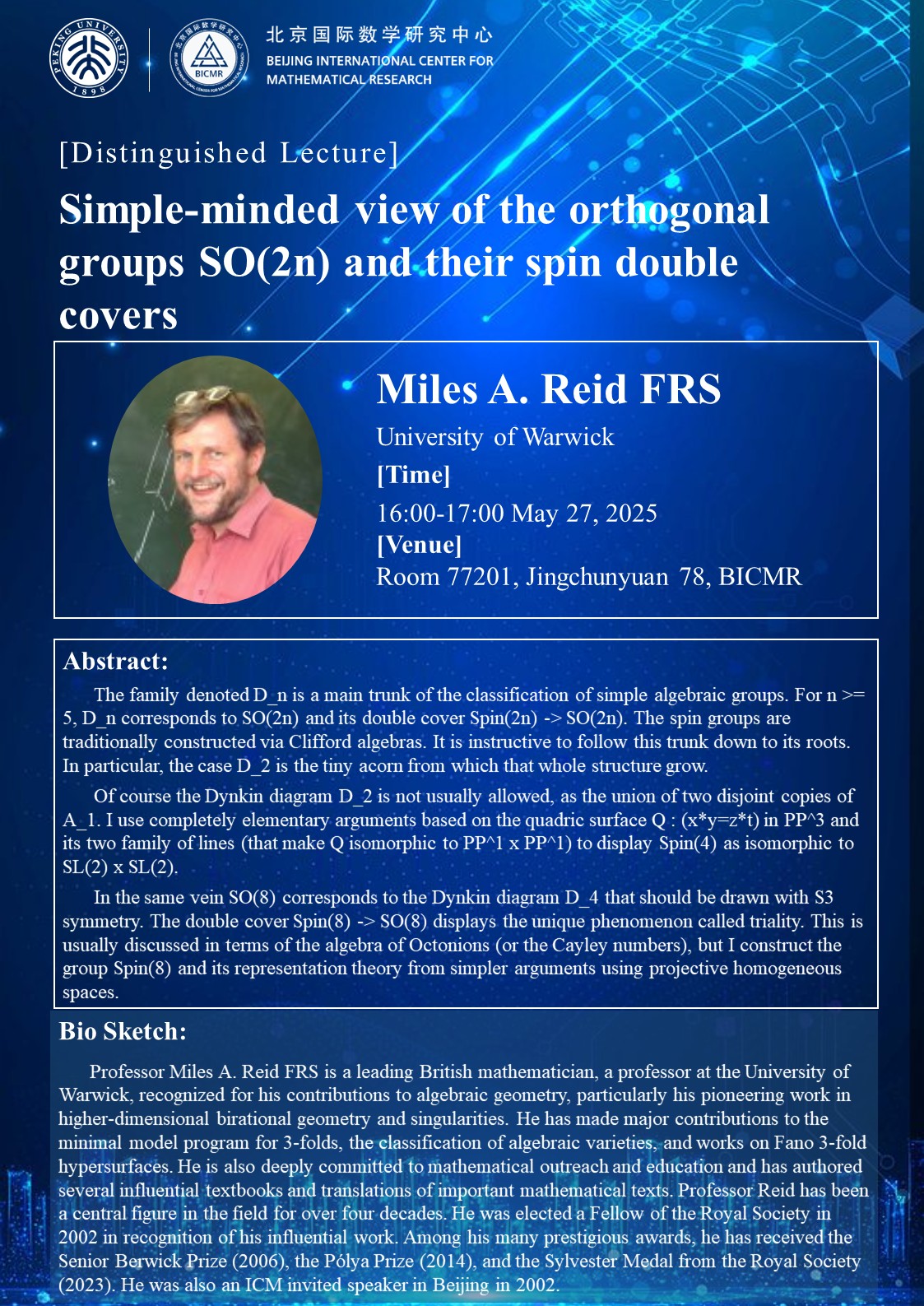[Distinguished Lecture] Simple-minded view of the orthogonal groups SO(2n) and their spin double covers
Speaker(s): Miles A. Reid FRS (University of Warwick)
Time: 16:00-17:00 May 27, 2025
Venue: Room 77201, Jingchunyuan 78, BICMR
Abstract:
The family denoted D_n is a main trunk of the classification of simple algebraic groups. For n >= 5, D_n corresponds to SO(2n) and its double cover Spin(2n) -> SO(2n). The spin groups are traditionally constructed via Clifford algebras. It is instructive to follow this trunk down to its roots. In particular, the case D_2 is the tiny acorn from which that whole structure grow.
Of course the Dynkin diagram D_2 is not usually allowed, as the union of two disjoint copies of A_1. I use completely elementary arguments based on the quadric surface Q : (x*y=z*t) in PP^3 and its two family of lines (that make Q isomorphic to PP^1 x PP^1) to display Spin(4) as isomorphic to SL(2) x SL(2).
In the same vein SO(8) corresponds to the Dynkin diagram D_4 that should be drawn with S3 symmetry. The double cover Spin(8) -> SO(8) displays the unique phenomenon called triality. This is usually discussed in terms of the algebra of Octonions (or the Cayley numbers), but I construct the group Spin(8) and its representation theory from simpler arguments using projective homogeneous spaces.
Bio-Sketch:
Professor Miles A. Reid FRS is a leading British mathematician, a professor at the University of Warwick, recognized for his contributions to algebraic geometry, particularly his pioneering work in higher-dimensional birational geometry and singularities. He has made major contributions to the minimal model program for 3-folds, the classification of algebraic varieties, and works on Fano 3-fold hypersurfaces. He is also deeply committed to mathematical outreach and education and has authored several influential textbooks and translations of important mathematical texts. Professor Reid has been a central figure in the field for over four decades. He was elected a Fellow of the Royal Society in 2002 in recognition of his influential work. Among his many prestigious awards, he has received the Senior Berwick Prize (2006), the Pólya Prize (2014), and the Sylvester Medal from the Royal Society (2023). He was also an ICM invited speaker in Beijing in 2002.



